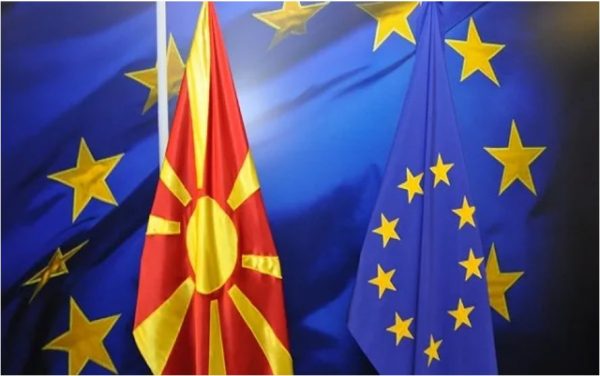On the eve of Tuesday’s General Affairs Council meeting in Brussels, where participants should revisit and decide on the EU’s negotiating framework with North Macedonia, the country remains strongly committed to pressing ahead despite the slim chances of Sofia withdrawing the veto as it insists that its demands in relation to history should be included in the framework.
As Sofia is keeping mum on a possible breakthrough that could unblock the negotiating framework, which paves the way for holding the first intergovernmental conference between the EU and North Macedonia, Skopje has underlined that communication channels with Sofia remain open.
Macedonian top state officials have been categorical reassuring that the identity and the language are not up for debate. A document is being considered – yet to be decided whether it would be a memorandum or a protocol – aimed at implementing the Friendship Treaty with Bulgaria.
Prime Minister Zoran Zaev has been optimistic believing that Bulgaria might lift the veto at the last minute to allow North Macedonia to open negotiations with the Union during the German presidency by the end of the year.
He commended Bulgarian Minister Krasimir Karakachanov’s move, calling it constructive, to take part in a radio interview over the weekend. From his comments, Zaev said, it’s evident that Karakachanov has no issue with accepting the fact that Macedonian language and Macedonian nation exist.
“We remain prepared in the spirit of friendship to build relations between Bulgaria and North Macedonia and to build our joint future. I sincerely hope there is chance for the negotiating framework to be adopted and the intergovernmental conference to be held,” PM Zaev said noting that the teams of the countries’ foreign ministries have been engaged in intensive talks.
The roadmap that is being debated, he said, provides an excellent foundation to keep the door open to settle the issues that are standing in the way of North Macedonia joining the EU.

Regarding the use of the adjective Macedonian, which has hindered the work of the joint Macedonian-Bulgarian commission on historical issues after different interpretations of the Prespa Agreement were presented, Zaev said the agreement clearly regulates how it should be used identity-wise. He said he regrets the commission hasn’t been able to make progress, but noted that it is up to the historians to do their job and find a solution.
On Sunday, DUI leader Ali Ahmeti said he believed a solution to the Macedonian-Bulgarian dispute will be found. The junior coalition partner said Bulgaria will overcome the sensitive topics.

Furthermore, VMRO-DPMNE has been accusing the government of putting the adjective Macedonian on the negotiations table and of being prepared to give up on the Macedonian history, Macedonian language and Macedonian identity.
The opposition party on Sunday staged a performance in front of the government building depicting Zoran Zaev, Nikola Dimitrov, Bujar Osmani and Vlado Buchkovski as being the characters of The Daltons comics.
Last week, the government named former prime minister Vlado Buchkovski as special envoy for Bulgaria.

In the meantime, Bulgaria, as it has been confirmed, remains isolated in the EU in blocking North Macedonia. The upcoming European Council meeting is seen as the last-ditch effort for the EU to adopt the negotiating framework for North Macedonia, especially after German Chancellor Angela Merkel, whose country currently holds the six-month rotating EU presidency, has stressed that she hoped progress would be made in relation to North Macedonia.















